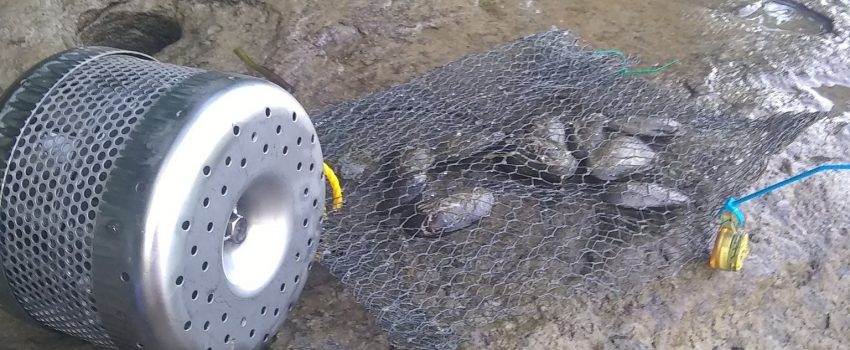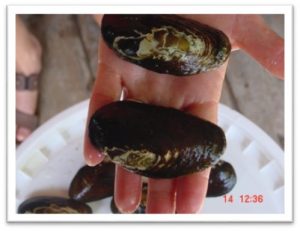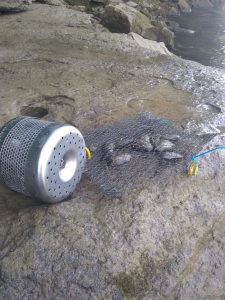
Caged mussels: underwater spies for the Niagara River
Fish, mussels, and aquatic insects that live in the water or sediment can tell us about the potential risk of contaminants in the water that may impact our health.

Mussels (Elliptio complanata)
Mussels (Elliptio complanata), collected from an uncontaminated lake in south central Ontario, are placed in cages and deployed in the Niagara River on both the Canadian and American side for three weeks upstream and downstream of areas that are known or suspected of being contaminated. Included alongside the caged mussels are special types of passive samplers called semi-permeable membrane devices, so that we can measure a variety of contaminants in the water using different methods that may be even more sensitive than the living mussels.
Since 1983, researchers at the Ontario Ministry of the Environment, Conservation and Parks (MECP) have used caged mussels and special sampling devices to measure a variety of toxic chemicals in the Niagara River. This program is part of a bi-national commitment between the federal, provincial and state governments to improve water quality in the Niagara River—an initiative called the Niagara River Toxics Management Plan.

Caged mussels from the Niagara River. Photo credit: @Shane83341383
If you find these cages (pictured left) when you are enjoying the shores of the Niagara River, please do not disturb them. They must remain in the water to accurately measure the presence of the contaminants and researchers need to be able to find them when they return to the site to collect the mussels for testing.
The information gathered from this ongoing monitoring effort identifies sources of contaminants that can be targeted for follow-up investigations, source control and possible remediation through the Niagara River Toxics Management Plan. It is also a source of technical data for the Niagara River Remedial Action Plan.
Despite the significant reduction of toxic chemicals in the Niagara River since the 1980s, there are still some sources on the U.S. side that need to be addressed.
Want to know more?
Click here to read the most recent technical report on the mussel biomonitoring study. Do you have more questions? Contact us for more information: info@ourniagarariver.ca or 905-788-3135 x243
